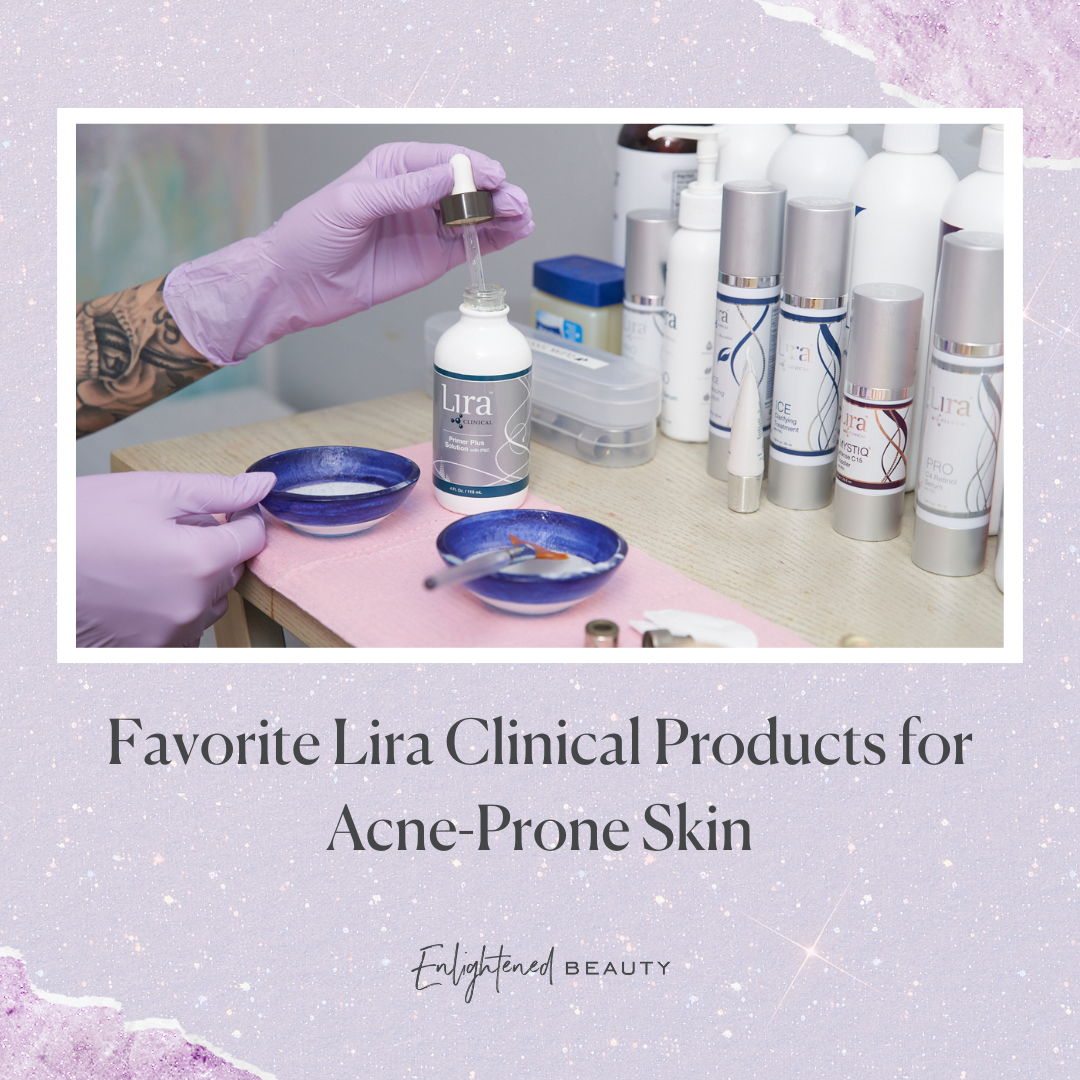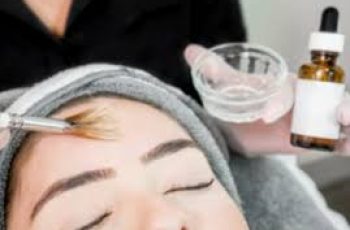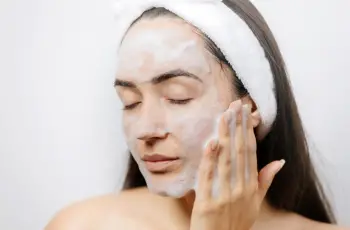
Acne is something that many of us have dealt with at one point or another. It can be frustrating and even embarrassing, but the good news is that there are ways to treat it effectively. As an Esthetician, I have a few favorite Lira treatments and products that I like to use when treating acne.
In this blog post, I’m going to share some of my top picks for of Lira Clinical products that work amazingly for acne in both the treatment room and your home care regimen.
For Skincare Professionals
SAL PULP: A GREAT INTRODUCTION TO LIRA TREATMENTS
When someone comes to my clinic for the first time to treat acne, Sal Pulp is usually my go-to introduction treatment. This peel delivers results and is great because even just one layer and a retinal seal can help to calm down inflammation.
BETA SAL AND RETINAL: A POWERFUL COMBINATION
Once we’ve introduced Sal Pulp, the next step is usually to start using Beta Sal and Retinol together in a layered form. I love using Beta and Sal together because the retinal seal really seals everything in and gives the skin an extra peel. They’re also amazing on their own.
Plus, my clients love to peel! During the peel process, I always like to offer the reminder to give it time. Your skin may not peel right away or even dramatically and just because your skin isn’t peeling doesn’t mean that it’s not accepting the acids, peptides, and plant stem cells in the product.
For Home Care
HYDRATION IS KEY, EVEN FOR ACNE-PRONE SKIN
One of the most common misconceptions that people with acne have is that they should not moisturize their skin. This thought process stems from the belief that since acne-prone skin is already oily, moisturizing will only make it worse. However, this is far from the truth.
In fact, the most common issue that people with acne face is an unbalanced pH level. Ensuring that you’re consistently hydrating your skin will help to balance the pH level and actually prevent your skin from producing excess oil.
Remember this: Your skin is smart and will regulate itself if you give it what it needs.
Bio Caviar Crème
Mystiq Iluminating Beauty Oil
That’s exactly why I recommend using products like Mystiq Beauty Oil and Caviar Creme, even for clients with acne.
In fact, every single one of my clients who has acne is using Mystiq Beauty Oil as a part of their night-time regimens.
Using Caviar Creme on even intense, oily cystic acne can be so beneficial. Plus, it has a light, non-greasy texture that won’t clog your pores or leave your skin feeling heavy or more oily.
I always recommend using these products at night, so that your skin can fully absorb all of the amazing nutrients and moisture. And trust me, when you wake up in the morning, your skin will feel so soft, smooth, and hydrated – they’re honestly my top favorite Lira products for acne-prone skin.
Ultimately, it’s all about being aggressive with your home care and giving your skin the hydration it needs.
AGGRESSIVE TREATMENTS NEED EXTRA HYDRATION
When clarifying treatments for acne, the skin definitely needs that extra hydration. That’s why I feel comfortable being a bit more aggressive with my peels in the treatment room when I know that my clients are using products like Caviar Creme and Beauty Oil at home and are going to be committed to their home care. We can all rest easy knowing that the skin will heal more effectively when it has the right products to support it.
FINAL THOUGHTS
Dealing with acne can be tough, but with the right treatments and products, you can see great results. For my fellow Estheticians that are supporting their clients with acne, I highly recommend trying Sal Pulp as an introduction to Lira treatments, as well as using Beta Sal and Retinol together.
Don’t forget that hydration is key, even for acne-prone skin. Having the support of your Esthetician, being committed to your skincare routines outside of the treatment room, and using hydrating products, like the ones recommended above will help give your skin the boost it needs to regulate itself!
Want more tips, recommendations, and the inside scoop on my most-effective protocols?


